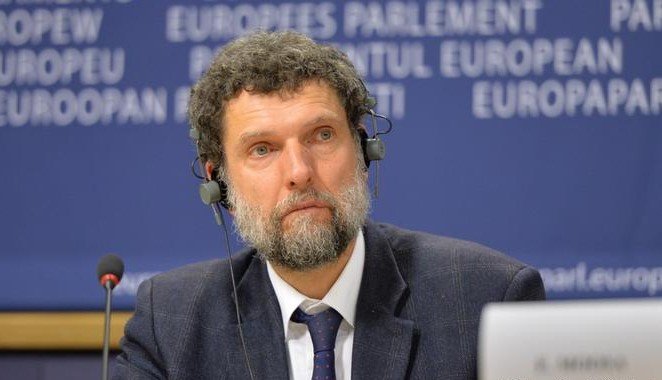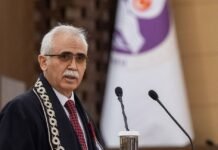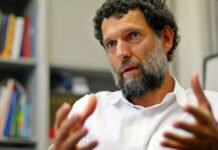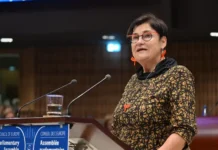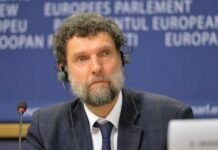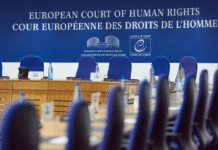A request by the co-rapporteurs for the monitoring of Turkey by the Parliamentary Assembly of the Council of Europe (PACE) to visit businessman and philanthropist Osman Kavala in prison has been denied by the Turkish Justice Ministry, Turkish Minute reported.
An İstanbul court on April 25 sentenced Kavala, who had been behind bars without a conviction for over four years, to aggravated life and his co-defendants to 18 years each on charges of instigating the anti-government Gezi Park protests in 2013.
Co-rapporteurs John Howell (United Kingdom, EC/DA) and Boriss Cilevics (Latvia, SOC) sought permission to visit Kavala as part of their three-day visit to İstanbul and Ankara focused on the activist’s case, but the request was denied by the Justice Ministry.
Not being able to visit Kavala was “saddening,” Howell told Euronews Turkish service on Saturday, adding that they had come to Turkey “to understand first-hand what Kavala thought of the case against him, and to hear his views.”
The rapporteurs also said in a written statement that they had been “shocked” by the aggravated life sentence given to Kavala, which “blatantly defied the 2019 ruling of the European Court of Human Rights.”
Turkey has refused to release Kavala despite a binding judgment of the ECtHR in December 2019 finding that his detention was in pursuance of an “ulterior motive,” that of silencing him as a human rights defender. The non-implementation of the ruling prompted the Council of Europe (CoE) Committee of Ministers to launch an infringement procedure against Turkey in February, which is still ongoing.
If the non-compliance continues, Turkey could ultimately lose its voting rights or even be removed from the pan-European rights body it first joined in 1950.
The rapporteurs met with Kavala’s lawyers, representatives from the Justice Ministry and other government officials, and several NGOs during their fact-finding visit.
“As a result of our fruitful meetings … we have heard the legal arguments on both sides. However, it seems clear to us that evidence deemed insufficient by the Strasbourg court to justify even pre-trial detention was nevertheless used as the basis for the harshest possible sentence at the first instance level. This amounts to a clear disregard for the findings of the European Court of Human Rights,” they said.
After being acquitted of charges of attempting to overthrow the state through involvement in the 2013 nationwide Gezi Park protests in February 2020, the philanthropist was rearrested the same day on charges related to a 2016 abortive putsch in Turkey in a move described by his lawyers as a tactic to circumvent the 2019 ruling of ECtHR.
Turkey maintains the ECtHR ruling only applied to Kavala’s original detention and that it is not related to the current conviction. The rapporteurs, however, believe that the judgment “also applies to the subsequent indictment for which he was re-arrested.”
“We believe that resolving the Kavala case lies in the hands of the Turkish judicial system,” the rapporteurs said, adding that Turkish courts had “the capacity to find a legal solution which complies with the Strasbourg ruling … without political pressure or undue interference”.
The Gezi Park demonstrations, which took place in the summer of 2013 in reaction to the Justice and Development Party (AKP) government’s attempt to destroy one of the few green spaces left in İstanbul, quickly turned into a nationwide protest against the authoritarian policies of then-prime minister and current president Erdoğan.
Eleven protestors died and thousands more were injured as they were brutally suppressed by the police on Erdoğan’s instructions.
A leading figure in Turkey’s civil society, 64-year-old Kavala was born in Paris, educated in the UK and ran a cultural center before rising to prominence.
The activist’s plight had soured relations between Ankara and Western nations, and a diplomatic crisis was triggered last year when Turkey threatened to expel 10 Western ambassadors, including the US envoy, after they demanded Kavala’s release.

